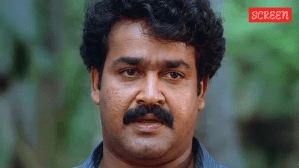A Turkish delight
With shotgun weddings,adultery,illegitimate children,kidnappings and car accidents,the Turks have put a twist in racy soaps which has Arab viewers yearning for more
A topless hunk lights candles in the bedroom. A woman appears in the doorway. Come on,lets not be late, she begs him,although her dark brown eyes say something different. They kiss. He lets down her hair and theres a flash of his wedding ring as they move toward the bed. A spaghetti strap slips off her naked shoulder.
Just another day at the office for the stars of Gumus,the Turkish soap opera that during its two-year run here on Kanal D has offered Turks not only the daytime-television miracle of sexual foreplay,but the standard sudsy compendium of shotgun weddings,kidnappings,car accidents and crazy plot twists.
Usual stuff to aficionados of the genre. But Turkish television has given the soap a fresh twist by making the connivers,kidnappers and canoodlers Muslims. And it is Arab audiences,even more than Turks,who have been swept off their feet.
Led by Gumus (Noor in Arabic),a wave of Turkish melodramas,police procedurals and conspiracy thrillers Yaprak Dokumu,Kurtlar Vadisi,Asmali Konak,Ihlamurlar Altinda and now the steamy Ask-i Memnu,the top-rated series in Turkey (think Madame Bovary on the Bosphorus)- are making their way onto Arab televisions,wielding a kind of soft power.
Through the small screen,Turkey has begun to exercise a big influence at Arab dinner tables,in boardrooms and bedrooms from Morocco to Iraq. Politics and culture go hand in hand,here as elsewhere. If most Arabs watch Turkish shows to ogle beautiful people in exotic locales,Arab women have also made clear their particular admiration for the rags-to-riches story of the title character in Noor,a strong,business-savvy woman with a doting husband named Muhannad. Dr Shafira Alghamdi,a Saudi pediatrician,was on vacation recently,shopping with two Saudi friends,and volunteered how Arab husbands often ignore their wives,while on Noor,Noor and Muhannad openly love and admire each other.
A lot of Saudi men have gotten seriously jealous of Muhannad because their wives say,Why cant you be more like him? Alghamdi said. Meanwhile,she was illustrating another consequence of the show: the sudden,spectacular boom in Arab tourism to Turkey. Millions of Arabs now flock here. Turkish Airlines has started direct flights to gulf countries (using soap stars as spokespeople). Turkish travel companies charter boats to ferry Arabs who want a glimpse of the waterfront villa where Noor was filmed. The owner recently put the house on the market for $50 million. Until lately he charged $60 for a tour,more than four times the price of a ticket to the Topkapi Palace. Even fatwas by Saudi clerics calling for the murder of the soaps distributors havent discouraged a store in Gaza City from hawking knockoffs of Noors sleeveless dresses. .
Arab men say they dont watch these shows but they watch, said Arzum Damar,who works for Barracuda Tours in Istanbul.
If this seems like a triumph of Western values by proxy,the Muslim context remains the crucial bridge. Ultimately,its all about local culture, said Irfan Sahin,the chief executive of Dogan TV Holding,Turkeys largest media company,which owns Kanal D. People respond to whats familiar.
During the last 20 years or so Turkey has ingested so much American culture that it has experienced a sexual revolution that most of the Arab world hasnt,which accounts for why Noor triumphed in the Middle East but was considered too tame for most Turks.
There are people still living even in this city who say they only learned how to kiss or learned there is kissing involved in lovemaking by watching Noor, explained Sengul Ozerkan,a professor of television here. Turkey always acts like a kind of intermediary between the West and the Middle East, she added.
Or as Sina Kologlu,the television critic for Milliyet,a Turkish daily,phrased it the other day: US cultural imperialism is finished. Turkish production values have improved,and Asians and Eastern Europeans are buying Turkish series,not American or Brazilian or Mexican ones. They get the same cheating and the children out of wedlock and the incestuous affairs but with a Turkish sauce on top.
nem Arsu contributed reporting
- 01
- 02
- 03
- 04
- 05































